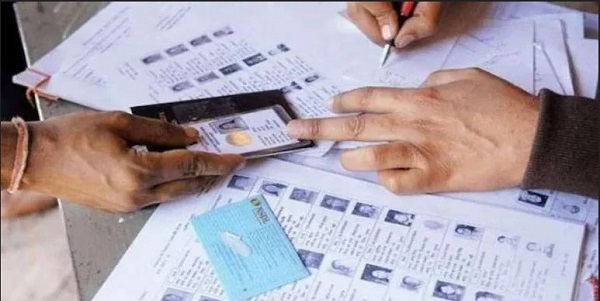Linking Electoral Rolls with Aadhaar

What does the Bill propose with regards to Aadhaar?
The Election Laws (Amendment) Bill, 2021 has been pushed through the Parliament during the Winter Session. Some of the highlights:
- Enables electoral registration officers to seek Aadhaar number to establish the identity of persons wishing to register as voters
- Enables the electoral registration officers to seek Aadhaar number of persons already in the electoral roll to authenticate the entries
- Application for including a person’s name in the electoral roll cannot be denied if a person is unable to furnish the Aadhaar details due to certain causes. Such persons could furnish alternative documents for the purpose.
- Entries in the electoral rolls won’t be deleted just because the individual is unable to furnish the Aadhaar details due to certain reasons.
What is the purpose of this move?
- There are concerns of some electors being registered in multiple constituencies. Some non-citizens have been enrolled in the electoral rolls too. This Bill seeks to purify the electoral rolls by weeding out the bogus voters.
- Seeding of Aadhaar data with voters’ particulars could help pave the way for remote voting. Remote voting would be especially useful for migrant workers and increase the number of people casting their votes during elections.
- Apart from the provisions regarding Aadhaar, the Bill’s provision for 4 qualifying dates for roll revision will expedite enrolment of persons turning 18 years old.
Why is there concern?
- The critics have raised concerns about the possibility of disenfranchising legitimate voters who may be unable or unwilling to submit their Aadhaar data.
- They have also raised concerns about the violation of privacy.
- There are concerns about the possible misuse of demographic details for voter profiling.
- The Aadhaar provision of the Bill is voluntary but it may become mandatory in practice i.e. the choice of a person to not submit the Aadhaar data is linked to ‘sufficient cause’, which is to be prescribed. It is unknown whether an objection on principle is one of these permissible reasons. If a person refuses to submit his/ her Aadhaar data, he/ she may lose franchise.
- Even in case of the unique identification number allotted to over 90% of the population, there have been complaints of wrongful enrolment.
What is the way ahead?
- Like with many other Bills recently, there has been an unwillingness to get wider consultation and meaningful debate in how this Bill has been considered in the Parliament. This unwillingness could undo even the progressive provisions of the legislation.
- With regards to the bogus voters issue, there are other options for proper identification. The Aadhaar database may even be irrelevant here as it is an identification of residents (as opposed to citizens).
- The concerns raised by the critic need to be considered by a parliamentary committee.
- Thorough parliamentary scrutiny and public feedback must be factored into the law-making process before implementing the provisions.
Conclusion:
There are progressive aspects in the amendment bill but the provision on linking Aadhaar with the electoral roll has raised apprehensions. These must be addressed before the legislation is implemented.
If you like this post, please share your feedback in the comments section below so that we will upload more posts like this.

